Powerball is an American lottery game offered by 45 states, the District of Columbia, Puerto Rico and the U.S. Virgin Islands. It is coordinated by the Multi-State Lottery Association (MUSL), a nonprofit organization formed by an agreement with lobbyists and US corporations. From its inaugural drawing on April 19, 1992, until August 21, 2021, Powerball drawings were held twice a week ; a third weekly drawing was added on August 23, 2021. Drawings are held every Monday, Wednesday and Saturday evening at 10:59 p.m. Eastern Time, at Florida Lottery headquarters in Tallahassee.

The Georgia Lottery Corporation, known as the Georgia Lottery, is overseen by the government of Georgia, United States. Headquartered in Atlanta, the lottery takes in over US$1 billion yearly. By law, half of the money goes to prizes, one-third to education, and the remainder to operating and marketing the lottery. The education money funds the HOPE Scholarship, and has become a successful model for other lotteries, including the South Carolina Education Lottery.
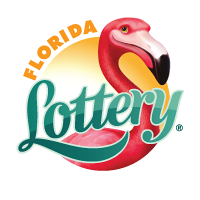
The Florida Lottery is a government-run organization in the state of Florida, United States. With numerous on-line and scratch-off games available, players have a wide variety of prize levels to choose from. Since it began, the Florida Lottery has continued to add variety to its portfolio of games. The Lottery has experimented with higher price points, enhanced traditional games, and introduced seasonal promotional games. In 2012, Florida was the third-ranked state in yearly lottery revenue with $4.45 billion; revenue passed $5 billion in fiscal year 2013. Florida passed the legislation to enact the lottery in 1986 by a two to one ratio. The new lottery was spearheaded by Gov. Bob Martinez and the Florida legislature with the mission of maximizing revenues for the enhancement of public education in Florida. The lottery was founded on the basis that it would provide the people of Florida the opportunity to benefit from additional revenues while providing the highest quality games available. The lottery's first game, MILLIONAIRE was a $1 scratch-off that was immensely popular. Within 17 days, the scratch-off game had paid back the entire $15.5 million to the state's general fund. As of 2022, Florida offers eleven (11) terminal-generated games: Cash4Life, Mega Millions, Powerball, Florida Lotto, Pick 2, Pick 3, Pick 4, Pick 5, Fantasy 5, Cash Pop, and Jackpot Triple Play.
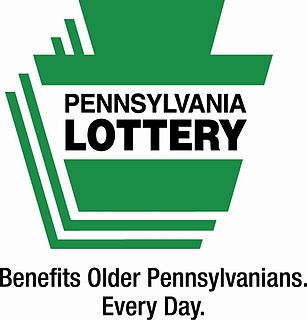
The Pennsylvania Lottery is operated by the Commonwealth of Pennsylvania. The Lottery was created by the Pennsylvania General Assembly on August 26, 1971; two months later, Henry Kaplan was appointed as its first executive director. The Pennsylvania Lottery sold its first tickets on March 7, 1972 and drew its first numbers on March 15, 1972.
Lotteries in Australia include various lottery related products licensed by the Lott and Lotterywest Australian lottery companies. Lotteries operators are licensed at a state or territory level, and include both state government-owned, not-for-profit and private sector companies. Most major Lotteries have now moved into the online marketplace.

The New Zealand Lotteries Commission, trading as Lotto New Zealand since 2013, is a Crown entity that operates nationwide lotteries in New Zealand. It was established in 1987 and operates under the Gambling Act 2003. Its oldest and most popular game is Lotto, which boasts a top prize pool of NZ$4 million. Other games include the four-draws-daily Keno, the daily Bullseye, and a variety of scratchcards and online games known as Instant Kiwi. Instant Kiwi may only be played by persons 18 years of age or older, under the Gambling Act 2003. Powerball and Lotto Strike are optional extras with every Lotto ticket.
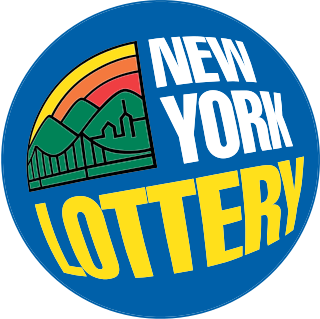
The New York Lottery is the state-operated lottery in the US state of New York that began in 1967. As part of the New York State Gaming Commission, it provides revenue for public education and is based in Schenectady.

The Idaho Lottery began play on July 19, 1989, and is run by the government of the state of Idaho. It is a member of the Multi-State Lottery Association (MUSL). Fifty percent of all net funds is given to public schools, while the remainder is pledged to the Permanent Building Fund, which is used as a financial resource for the state's colleges and universities.

The Connecticut Lottery Corporation, also called the CT Lottery, is the official lottery in Connecticut. It was created in 1971 by then-Gov. Thomas Meskill, who signed Public Act No. 865. The first tickets were sold on February 15, 1972. The Connecticut Lottery offers several in-house drawing games; Connecticut also participates in Mega Millions and Powerball; each are played in 44 states, the District of Columbia, and the U.S. Virgin Islands.
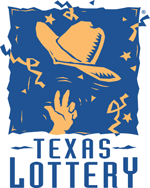
The Texas Lottery is the government-operated lottery available throughout Texas. It is operated by the Texas Lottery Commission, headquartered in downtown Austin, Texas.

The New Jersey Lottery is run by the U.S. state of New Jersey. Its In-house draw games are: Pick-3, Pick-4, Jersey Cash 5, Pick-6, Quick Draw, and Cash Pop. Its multi-jurisdictional draw games are: Cash4Life, Mega Millions, and Powerball. The Lottery also sells Fast Play and scratch-off tickets. The New Jersey Lottery is headquartered at One Lawrence Park Complex in Lawrence Township, Mercer County.
The Louisiana Lottery Corporation (LLC) is a government-run lottery that is used to generate revenue without increasing taxes. The proceeds of the Lottery go to the Minimum Foundation Program that funds public education in Louisiana. The daily activities involved with running the cooperation are handled by the president of the Louisiana Lottery Cooperation. The president is under the supervision of the Lottery's nine-member governing board of directors.
The Michigan Lottery offers numerous on-line and scratch-off games, giving players a wide variety of prize possibilities. Initiated under the authority of Public Act 239 in 1972, the games collect funds to support Michigan’s public school system.
The Wisconsin Lottery is run by the Wisconsin Department of Revenue and was authorized in 1988 by the state legislature. It is a member of the Multi-State Lottery Association (MUSL). Its games consist of Mega Millions, Powerball, Megabucks, Supercash!, Badger 5, Pick 3, Pick 4, All or Nothing, and scratch games. Since its founding, it has generated $4.6 billion for property tax relief for state residents.
The Virginia Lottery is an independent agency of the Commonwealth of Virginia. It was created in 1987 when Virginians voted in a statewide referendum in favor of a state lottery. The first ticket was sold on September 20, 1988. All profits from Virginia Lottery ticket sales go to K-12 public education, as required by Virginia's constitution. In Fiscal Year 2021, the Lottery's profits totaled more than $765 million, accounting for approximately 10 percent of school funding in Virginia. That brought total Lottery profits in Virginia to more than $13.8 billion.
The Uniform Invoice or Unified Invoice, is a type of receipt in Taiwan that is issued by merchants for selling products and services, kept by both seller and consumer, with a 8-digit number for each one, for taxation proposes, managed by the Ministry of Finance of the Republic of China (Taiwan) existence in many form such as hand-written 2-copy, 3-copy, and printed with cashier, and recently electric Uniform Invoice. Uniform Invoice also features a lottery-like feature drawn every two months.

The Massachusetts Lottery was established on September 27, 1971, following the legalization of gambling by the Massachusetts General Court, the legislature of the Commonwealth. The Lottery is administered by a commission of 5 members, who include the Treasurer and Receiver-General, the Secretary of the Massachusetts Department of Public Safety, and the Comptroller, who serve on an ex officio basis. The Governor appoints the other 2 members. It is a member of the North American Association of State and Provincial Lotteries (NASPL) since 1972.
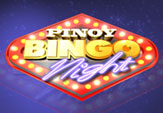
Pinoy Bingo Night is the Philippine game show version of National Bingo Night, which premiered on the ABS-CBN from March 30 to June 26, 2009. It is hosted by Kris Aquino with Brod Pete as the "bingo caller" and Mel Feliciano as the "commissioner", who referees the playing studio audience.
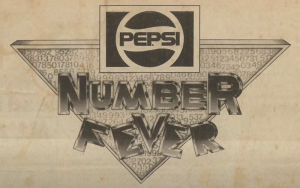
Pepsi Number Fever, also known as the 349 incident, was a promotion held by PepsiCo in the Philippines in 1992, which led to riots and the deaths of at least five people.












